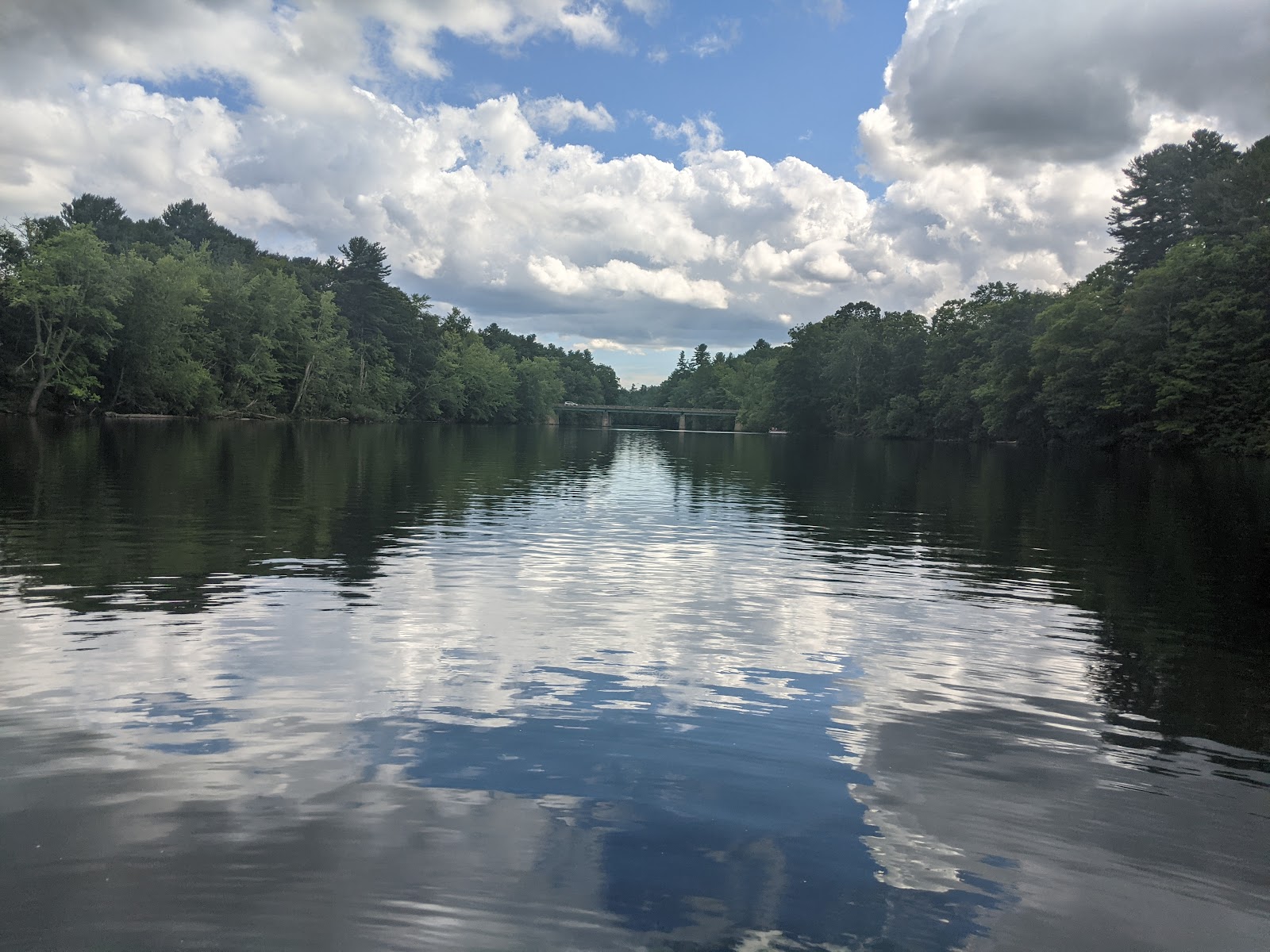Overview
Day One - Residence is a substance abuse treatment center for people seeking treatment near York County. As part of their treatment modalities for recovery, Day One - Residence provides 12-step facilitation, trauma-related counseling, and individual psychotherapy during treatment. Day One - Residence is located in Buxton, Maine, accepting medicaid for treatment.
Day One - Residence at a Glance
Payment Options
- Medicaid
- Cash or self-payment
- Payment assistance (check with facility for details)
- State-financed health insurance plan other than Medicaid
- Private health insurance
Assessments
- Comprehensive mental health assessment
- Comprehensive substance use assessment
Age Groups
- Children/adolescents
- Young adults
Operation
- Treatment duration
- Private non-profit organization
Accreditations
State department of health:

Government agencies issue State Licenses, granting rehabilitation organizations permission to operate their businesses legally within specific geographic regions. The licenses needed for legal operation are typically determined by the type of rehabilitation program offered by a facility and its physical location.
Treatment At Day One - Residence

Conditions Treated
Mental health treatment:
Mental health treatment involves a range of therapeutic approaches, provided by licensed professionals, to address mental health challenges. It includes psychotherapy, medication, and holistic practices to help individuals manage conditions, improve coping skills, and enhance overall well-being. The goal is to empower individuals to lead fulfilling lives and reduce the stigma surrounding mental health.
Alcoholism:
Alcohol addiction is a condition where a person's brain gets used to having alcohol, making it hard for them to control their drinking. This can lead to feeling down, acting without thinking, wanting alcohol strongly, and feeling sick if they don't drink. To help with this, treatment programs are available. These usually include a guided process to safely stop drinking, talking with professionals to work through problems, and joining support groups with others facing similar issues. While these treatments can't fully cure the addiction, they provide tools and support to help individuals live a better life and keep their drinking under control.
Opioid Addiction:
Opioid rehabilitation centers are dedicated to assisting individuals on the path to recovery from opioid addiction. They provide specialized care for those struggling with addiction to substances like heroin and prescription opioids such as oxycodone. These facilities offer a comprehensive approach, including medical detoxification, ongoing medical assistance (including medication-based treatment), and therapeutic support to address the root causes of addiction.
Substance use treatment:
Substance use rehabilitation is a comprehensive treatment approach designed to assist individuals struggling with addiction to drugs or alcohol. This form of rehabilitation addresses both the physical dependency, often starting with detoxification, and the psychological triggers, using various therapeutic methods. The objective is to empower individuals to achieve and maintain sobriety, while equipping them with the tools and coping strategies needed to reintegrate into society and lead a substance-free life.
Co-occurring Disorders:
Dual-diagnosis rehabilitation centers usually offer the most suitable approach for addressing concurrent mental health and substance abuse conditions. Within these facilities, a team of medical and behavioral professionals is typically assembled, employing diverse interventions and cultivating an optimal therapeutic environment to enable you to attain and maintain lasting recovery. The treatment regimen often encompasses evidence-based therapies, such as cognitive behavioral therapy, complemented by recovery support gatherings, 12-step program facilitation, skills development, and group therapy.

Levels Of Care
Detoxification:
Detoxification (detox) is the process of clearing the body of drugs or alcohol that an individual has consumed. The purpose of detox is to safely manage withdrawal symptoms when someone stops taking drugs or alcohol. It denotes a clearing of toxins from the body of the patient who is acutely intoxicated and/or dependent on substances of abuse. Detoxification seeks to minimize the physical harm caused by the abuse of substances.
Aftercare:
Finishing a drug or alcohol rehab program is not the conclusion of substance abuse treatment but rather a pivotal step toward long-term recovery. Aftercare encompasses devising a sustainable recovery plan coupled with enduring support. It may include sober living environments such as halfway houses, career counseling, and connecting patients with community support programs like Alcoholics Anonymous (AA) or Narcotics Anonymous (NA). This holistic approach ensures a smooth transition into a substance-free life while bolstering resilience against relapse.
Hospital inpatient treatment:
Inpatient treatment involves an intensive, residential therapeutic program designed to treat serious addictions or other medical conditions. With a typical stay ranging from 30 to 90 days, individuals receive a structured regimen of various therapies including individual and group counseling, behavioral therapies, and family counseling. Under professional supervision, patients immerse themselves in a supportive environment, conducive to addressing underlying issues and promoting long-term recovery.

Treatment Modalities
12-step facilitation:
12-Step Facilitation is a structured approach to recovery used in many rehab facilities. It's rooted in the principles and practices of Alcoholics Anonymous (AA) and its 12-step program. The facilitation process promotes abstinence and supports individuals in becoming actively involved in 12-step self-help groups. The approach emphasizes personal responsibility, spiritual growth, and the importance of peer support to maintain sobriety and prevent relapse. By guiding individuals through each step, 12-step Facilitation aids participants in understanding the underlying causes of their addiction, seeking amends, and fostering a commitment to lifelong recovery.
Trauma-related counseling:
Trauma therapy addresses the deep-seated emotional and psychological wounds often linked with substance abuse disorders. Recognizing that traumatic experiences can be a root cause or a significant contributing factor to substance addiction, this therapeutic approach seeks to help individuals understand, process, and heal from their traumas. Doing so fosters emotional healing and bolsters the individual's chances of long-term recovery from addiction. Integrating trauma-informed care into addiction treatment ensures a comprehensive approach that addresses substance abuse's symptoms and underlying causes.
Individual psychotherapy:
Individual therapy is a one-on-one therapeutic interaction between a therapist and a client to address personal challenges, foster self-awareness, and promote mental, emotional, and behavioral growth. This setting provides a confidential and supportive environment for individuals to explore their thoughts, feelings, and behaviors, identify goals, and develop coping strategies. Individual therapy can be beneficial for a range of concerns, including anxiety, depression, stress management, relationship issues, and life transitions.
Group counseling:
Group Counseling is a therapeutic approach where individuals come together under the guidance of a trained counselor to share experiences, offer support, and gain insights. This collective format promotes mutual understanding and growth, allowing participants to learn from one another's perspectives and challenges.
Family counseling:
Family Counseling is a therapeutic approach that seeks to address and improve communication, understanding, and dynamics within a family unit. By addressing conflicts, emotional distress, and behavioral challenges, a trained therapist provides guidance and tools for family members to strengthen bonds, resolve issues, and foster a healthier family environment.
Life Skills:
Life skills training encompasses a comprehensive set of abilities essential for individuals to thrive in society. These encompass time management, career guidance, financial acumen, and effective communication. In the context of addiction recovery, true success goes beyond mere abstinence; it's about flourishing. Life skills instruction equips individuals with the practical tools needed to navigate society successfully, paving the way for a fulfilling life and, consequently, lasting sobriety.
Cognitive Behavioral Therapy:
Cognitive Behavioral Therapy (CBT) is a evidence-based psychotherapeutic approach that aims to address dysfunctional emotions, behaviors, and cognitions through a goal-oriented, systematic process. It involves identifying and challenging negative thought patterns and beliefs and replacing them with more constructive ways of thinking and behaving. CBT is commonly used to treat a variety of mental health disorders, including depression, anxiety, and phobias.
Motivational Interviewing:
Motivational Interviewing (MI) is a clinical approach to helping people with substance abuse issues and other conditions shift behavior in positive ways. It is more goal-oriented than traditional psychotherapy, as MI counselors directly attempt to get clients to consider making behavioral change (rather than wait for them to come to conclusions themselves). Its primary purpose is to resolve ambivalence and help clients become able to make healthy choices freely.
Nicotine replacement:
Nicotine Replacement Therapy (NRT) provides nicotine to the system without the need for smoking. It utilizes products that deliver minimal doses of nicotine, assisting individuals in their quest to quit smoking. The therapy aims to reduce nicotine cravings and mitigate withdrawal symptoms.
Experiential Therapy:
Experiential Therapy is a therapeutic approach that emphasizes direct experience and active client involvement to gain insight into unresolved issues and trauma. Through guided activities, role-playing, and other interactive techniques, clients are encouraged to confront and explore their emotions in the present moment, leading to a deeper understanding and resolution of their challenges. This therapy is rooted in the belief that transformative change occurs through meaningful experiences.
Recreational Therapy:
Recreational therapy, also known as therapeutic recreation, employs enjoyable and imaginative activities to aid in addiction recovery. Guided by recreational therapists, patients participate in lively activities such as sports, games, various art forms like drawing and painting, drama, music, dance, and community excursions. These activities are designed to enhance patients' physical, social, and emotional health.
Ancillary Services
Languages
- Sign language services for the deaf and hard of hearing
Special Programs
- Clients who have experienced trauma

Additional Locations
Contact Information
DISCLAIMER: The facility name, logo and brand are the property and registered trademarks of Day One - Residence, and are being used for identification and informational purposes only. Use of these names, logos and brands shall not imply endorsement. BetterAddictionCare.com is not affiliated with or sponsored by Day One - Residence.



